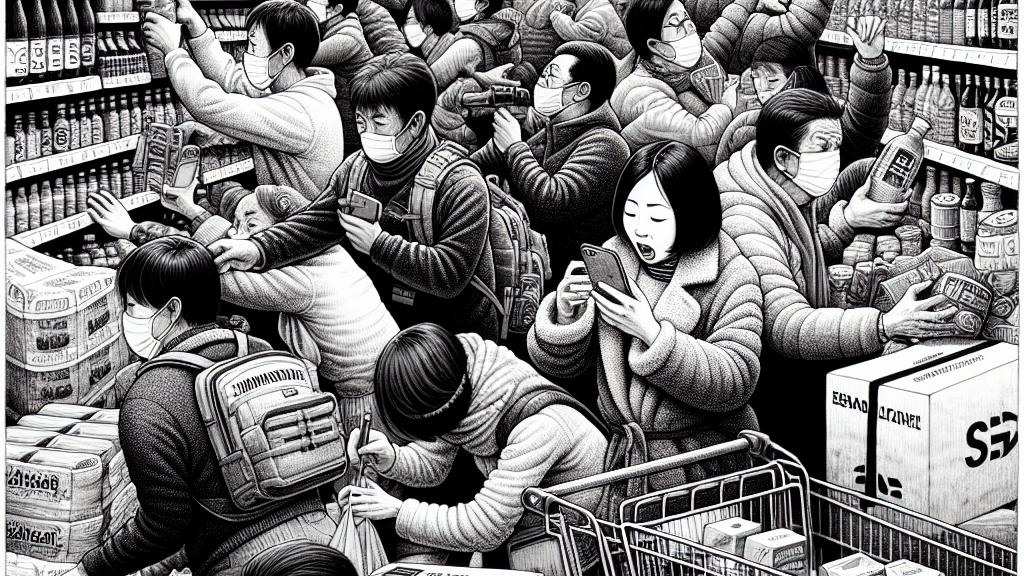Megaquake Madness: Japan's Rush for Supplies Sparks Shortages!
Overview
- Japan grapples with panic buying following a new 'megaquake' warning.
- Authorities appeal to the public to refrain from hoarding essential supplies.
- Recent earthquakes heighten anxiety and stir fears of potential disasters.

Context of Panic Buying in Japan
Japan is experiencing a notable uptick in panic buying as fears of a 'megaquake' loom over the nation. The Japanese government issued its first-ever advisory, warning about a heightened risk of a significant earthquake occurring along the Nankai Trough, a region with a history of devastating seismic activity. This alert triggered widespread panic among citizens, prompting them to flood stores and e-commerce platforms like Amazon and Rakuten in search of emergency supplies. Essential items such as bottled water, canned food, and disaster kits rapidly climbed the sales rankings, resulting in significant shortages across the nation. Retailers, determined to manage these unforeseen demands, have had to implement purchase limits to deter hoarding behavior.
The Role of Recent Seismic Activity
The recent surge in seismic activity, particularly following a 5.3 magnitude earthquake near Tokyo, has significantly amplified public anxiety. The Japan Meteorological Agency issued its warning after observing these unsettling tremors, stirring memories of catastrophic past events, such as the 2011 Great East Japan Earthquake. Experts have expressed particular concern about the Nankai Trough, which has a history of causing megaquakes that can lead to severe destruction and loss of life. With predictions indicating that a major quake could occur in the next few decades, many citizens find themselves compelled to prepare for potential emergencies. Such responsiveness to seismic alerts demonstrates a profound instinct for survival, reflecting how fear of the unknown can shape consumer behavior during crises.
Implications of Shopping Behavior During Crises
The phenomenon of panic buying during crises poses significant challenges to social stability and economic responsiveness. When citizens engage in panic buying, they inadvertently create shortages that can affect vulnerable groups within the community. The echoes of similar behavior during the COVID-19 pandemic remind society of the negative consequences of hoarding—the waste of perishable goods and the barriers created for others in need. In Japan's current situation, local authorities are working to educate the public about responsible purchasing practices, emphasizing the importance of preparation without excess. By fostering a culture of calmness and informed decision-making, officials hope to manage panic effectively and ensure that all citizens have equitable access to necessary supplies. Clear communication regarding the realities of potential disasters is vital in restoring public confidence and creating a more resilient society.

Loading...